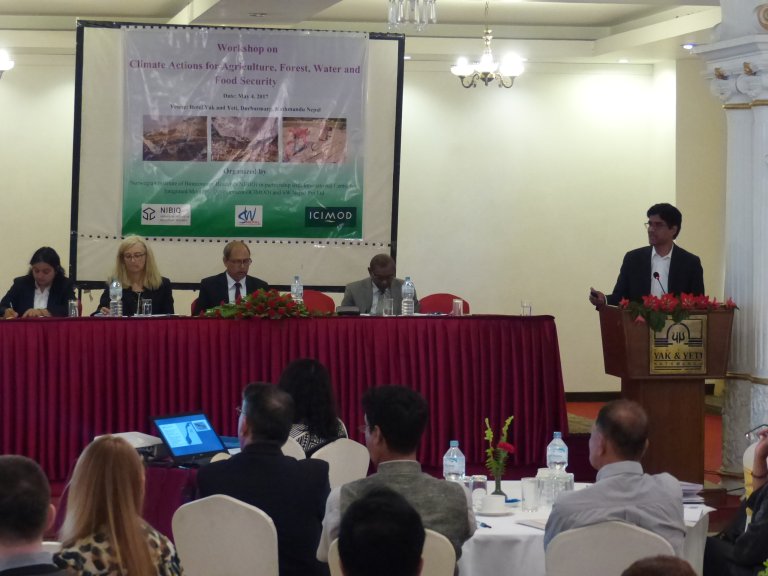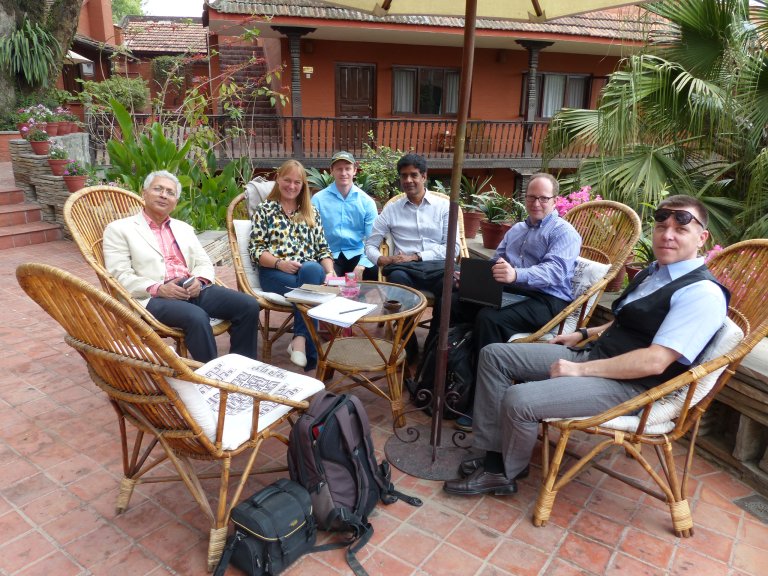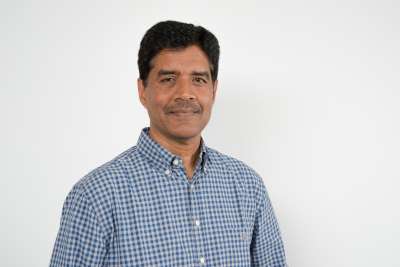Climate Actions for adaptation and mitigation to ensure Food Security in Nepal

Nepal. Photo: www.pixabay.com
Over 50 scientists, government representatives and participants from various scientific and private organisations met this week in Nepal to discuss topics concerning climate change adaptation.
Both developed and developing countries need to collaborate in mitigating the drivers of global warming and to build resilience to adapt to the changing climate as envisioned under the aegis of UNFCCC.
Nepal is among the five countries in the world most vulnerable to climate change and around 12 million people, especially in rural areas, are affected. To discuss solutions to mitigate and adapt to this climate change, a workshop was held in Kathmandu, Nepal yesterday. The joint stakeholder workshop was organized by the Norwegian Institute of Bioeconomy Research (NIBIO), in collaboration with the International Centre for Integrated Mountain Development (ICIMOD) and SW Nepal Pvt Ltd.

At the workshop participants exchanged knowledge, discussed and identified most serious challenges, as well as possible climate actions in agriculture, forest, and aquaculture sectors to ensure food security in Nepal.
More than 50 participants from nearly 25 agencies actively took part in the one day workshop. The workshop participants included experienced scientists and government representatives, as well as scientific and private sector organizations covering a wide range of climate related themes.
The topics discussed at the workshop included: Climate actions for mountain ecosystems and forestry in the context of Nepal; Climate change adaptation in Nepal through the use of smart technologies in agriculture and water sectors; Gender, policy and institutional mechanisms for climate change adaptation and resilience in Nepal.
The overall workshop discussions reflected on the impacts of climate change on mountain ecosystems, possible solutions, and the importance of gender mainstreaming and putting policy into practice to adapt and mitigate to climate change.
At the plenary, Dr. Sekhar briefed about the relevance of NIBIO’s work in the region to address climate change impacts. His main message was the importance of multidisciplinary approach, developing suitable climate smart technologies, gender mainstreaming, dissemination and capacity building, and science-policy linkage as key components in the successful implementation of the climate action initiatives. He also shared the experience from the ClimaAdapt project model in India.
The Joint Secretary from the Ministry of Forests and Soil Conservation inNepal acknowledged the relevance of the workshop to the current challenges Nepal is facing. According to him “Science should talk to Policy and Policy should respond through Action.”

Ms. Solveig Andresen, counsellor at the Royal Norwegian Embassy in Nepal appreciated NIBIO’s timely efforts to host this workshop, and bringing together relevant partners working with climate change in Nepal.
Adam Paruch, Research Professor, summarized his talk in a few words “waste water is not a waste, we need to see it as a resource”.
Udaya Sekhar Nagothu, Gregory Taff, Siv Lene Gangnes Skar, Adam Paruch and Adam O Toole from NIBIOalso participated in a series of meetings at the Norwegian Embassy in Kathmandu, ICIMOD, relevant ministries and the Nepal Agricultural Research Council.
The workshop and visits will most likely lead to a more active collaboration between NIBIO and relevant agencies in Nepal concerning climate change adaptation.
KONTAKTPERSON

KONTAKTPERSON

Tekst frå www.nibio.no kan brukast med tilvising til opphavskjelda. Bilete på www.nibio.no kan ikkje brukast utan samtykke frå kommunikasjonseininga. NIBIO har ikkje ansvar for innhald på eksterne nettstader som det er lenka til.
